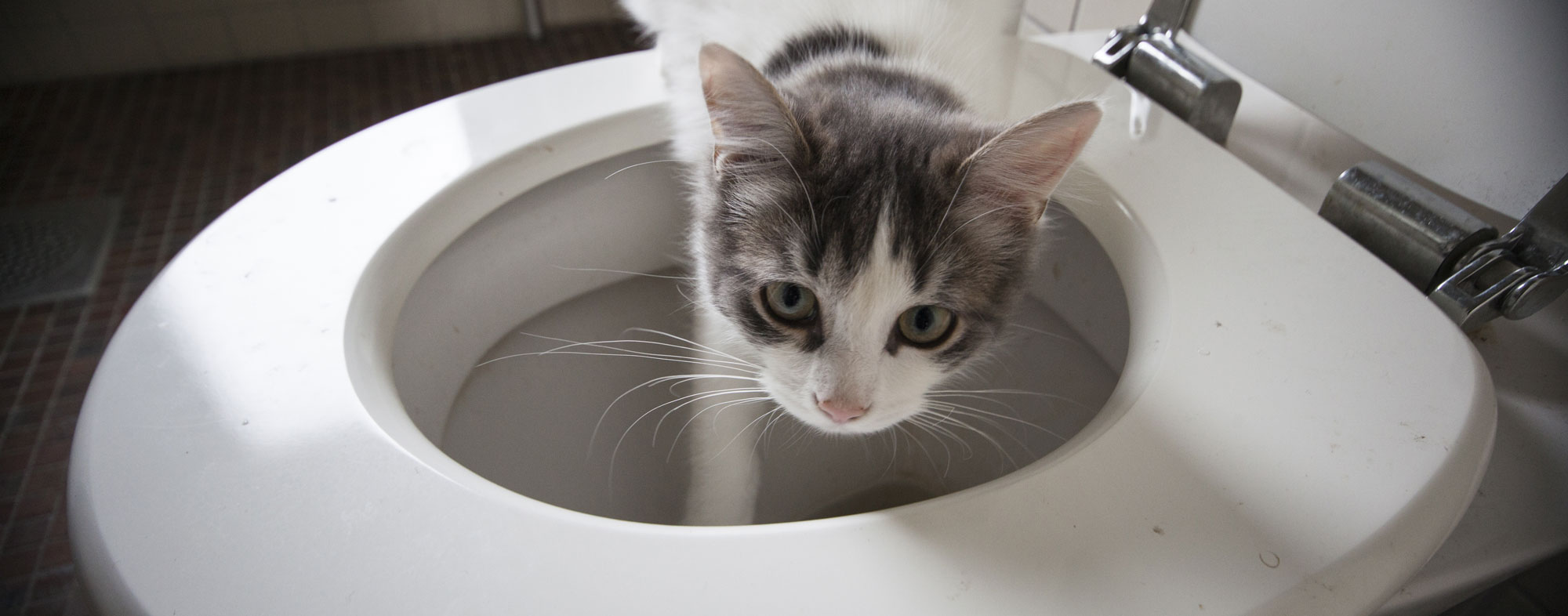Reasons Flushing Cat Poop Down Your Toilet Isn't a Good Idea - Tips for Safer Disposal
Reasons Flushing Cat Poop Down Your Toilet Isn't a Good Idea - Tips for Safer Disposal
Blog Article
What are your thoughts with regards to Don’t flush cat feces down the toilet?

Introduction
As pet cat owners, it's vital to bear in mind how we dispose of our feline close friends' waste. While it may seem convenient to flush cat poop down the bathroom, this practice can have detrimental repercussions for both the environment and human health and wellness.
Environmental Impact
Purging feline poop introduces damaging virus and bloodsuckers into the water system, presenting a considerable threat to aquatic ecological communities. These pollutants can adversely affect aquatic life and compromise water quality.
Wellness Risks
In addition to environmental issues, flushing feline waste can likewise present health threats to humans. Pet cat feces may include Toxoplasma gondii, a bloodsucker that can create toxoplasmosis-- a potentially serious disease, especially for pregnant women and people with damaged body immune systems.
Alternatives to Flushing
Fortunately, there are safer and more liable ways to deal with cat poop. Take into consideration the following choices:
1. Scoop and Dispose in Trash
One of the most common technique of throwing away cat poop is to scoop it right into an eco-friendly bag and toss it in the trash. Make certain to use a devoted clutter scoop and deal with the waste quickly.
2. Usage Biodegradable Litter
Go with eco-friendly feline litter made from materials such as corn or wheat. These litters are eco-friendly and can be safely disposed of in the trash.
3. Hide in the Yard
If you have a yard, consider burying feline waste in a marked location away from veggie gardens and water sources. Make sure to dig deep sufficient to stop contamination of groundwater.
4. Mount a Pet Waste Disposal System
Purchase an animal garbage disposal system especially developed for cat waste. These systems utilize enzymes to break down the waste, reducing smell and environmental influence.
Final thought
Liable family pet possession expands past giving food and sanctuary-- it likewise includes proper waste administration. By refraining from purging cat poop down the commode and opting for alternate disposal methods, we can minimize our ecological impact and safeguard human health and wellness.
Why Can’t I Flush Cat Poop?
It Spreads a Parasite
Cats are frequently infected with a parasite called toxoplasma gondii. The parasite causes an infection called toxoplasmosis. It is usually harmless to cats. The parasite only uses cat poop as a host for its eggs. Otherwise, the cat’s immune system usually keeps the infection at low enough levels to maintain its own health. But it does not stop the develop of eggs. These eggs are tiny and surprisingly tough. They may survive for a year before they begin to grow. But that’s the problem.
Our wastewater system is not designed to deal with toxoplasmosis eggs. Instead, most eggs will flush from your toilet into sewers and wastewater management plants. After the sewage is treated for many other harmful things in it, it is typically released into local rivers, lakes, or oceans. Here, the toxoplasmosis eggs can find new hosts, including starfish, crabs, otters, and many other wildlife. For many, this is a significant risk to their health. Toxoplasmosis can also end up infecting water sources that are important for agriculture, which means our deer, pigs, and sheep can get infected too.
Is There Risk to Humans?
There can be a risk to human life from flushing cat poop down the toilet. If you do so, the parasites from your cat’s poop can end up in shellfish, game animals, or livestock. If this meat is then served raw or undercooked, the people who eat it can get sick.
In fact, according to the CDC, 40 million people in the United States are infected with toxoplasma gondii. They get it from exposure to infected seafood, or from some kind of cat poop contamination, like drinking from a stream that is contaminated or touching anything that has come into contact with cat poop. That includes just cleaning a cat litter box.
Most people who get infected with these parasites will not develop any symptoms. However, for pregnant women or for those with compromised immune systems, the parasite can cause severe health problems.
How to Handle Cat Poop
The best way to handle cat poop is actually to clean the box more often. The eggs that the parasite sheds will not become active until one to five days after the cat poops. That means that if you clean daily, you’re much less likely to come into direct contact with infectious eggs.
That said, always dispose of cat poop in the garbage and not down the toilet. Wash your hands before and after you clean the litter box, and bring the bag of poop right outside to your garbage bins.
https://trenchlesssolutionsusa.com/why-cant-i-flush-cat-poop/

Do you enjoy reading up on Can You Flush Cat Poo or Litter Down the Toilet?? Try leaving a short review further down. We would be glad to find out your opinion about this write-up. In hopes that you come back again before long. Don't hesitate to set aside a second to distribute this blog entry if you enjoyed it. Thanks a lot for your time invested reading it.
Schedule Services Report this page